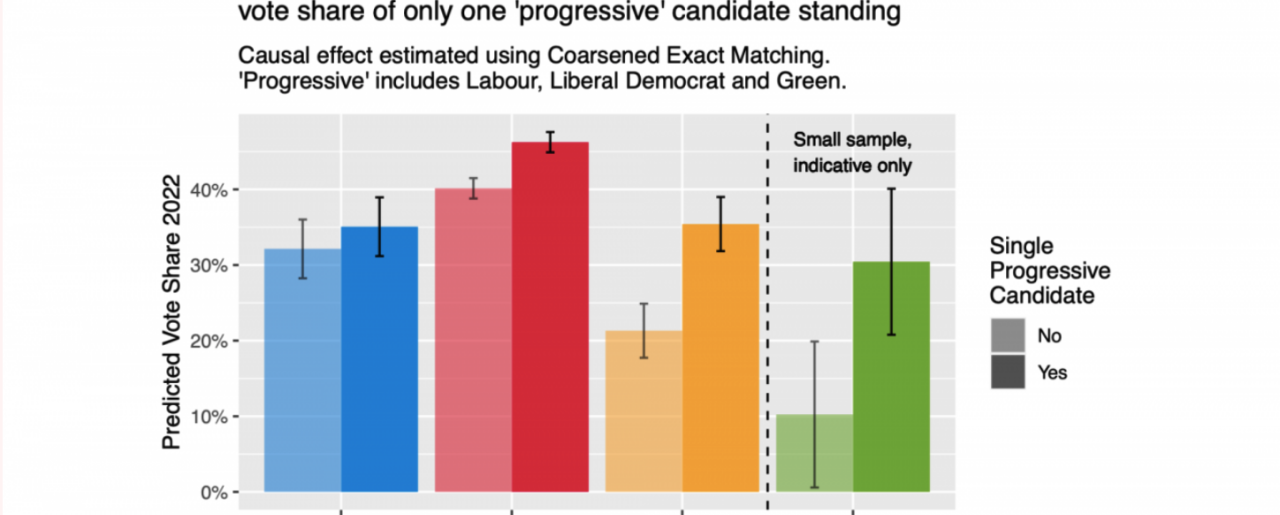In May’s local elections an unprecedented number of contests saw only one progressive candidate standing. By accident and, under the radar, by local design, progressive parties not competing had a stunning impact on party’s votes:
- The Labour vote rose by 6.1% where it was the only progressive challenger to the Tories.
- The Lib Dem vote rose by 14.1% where it was the only progressive challenger to the Tories.
- The Greens vote rose by 20.2% where it was the only progressive challenger to the Tories.[1}

Meanwhile, the estimated effect on the Conservative vote share is an increase of 2.9 per cent. This implies that a significant majority of voters for progressive parties will transfer to other progressive parties if their preferred party does not stand a candidate. Given that many wards are won by narrow margins, the effect of sole progressive candidates is likely to have affected the results of hundreds of elections this year.
Of the 432 elections these figures cover in England, Compass analysis shows the impact of a single progressive candidate meant somewhere in the order of 36 progressive candidates won who otherwise wouldn’t have if they faced progressive competition.
When the impact of non-competition is then applied to other seats in England where progressives did compete, then approximately 118 more seats could have been won by progressives if they had had a free run.
Before the local elections, the Co-Chair of the Conservative Party Oliver Dowden wrote to Keir Starmer accusing him of a non-competition pact with Ed Davey. There was no pact – but now we know why Dowden is alarmed.
First Past the Post massively distorts votes to the benefit of the Conservative Party because right-wing votes are consolidated around it. With a split progressive vote the only challenge to the Tories can come from a progressive alliance.
[1] The Green figures are less robust because of the sample size but the impact of non-competition for the Green Party is very large.
For more information on the analysis and the methodology please see Owen Winter’s blog and GitHub.

This shows how beneficial the alliance can be; just think how it could be with proportional voting where you dont throw your vote away, all votes count and all sides are represented in Parliament.